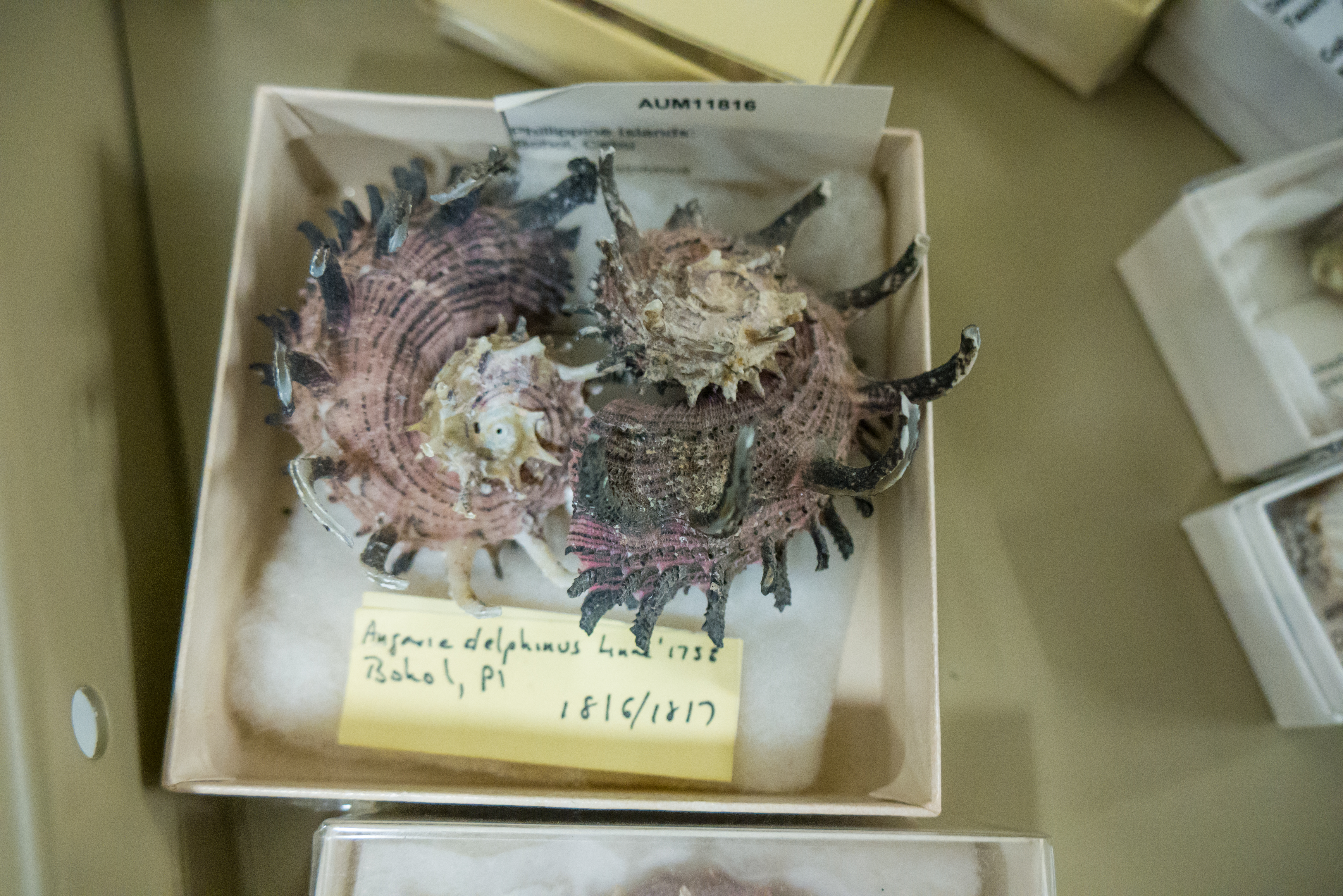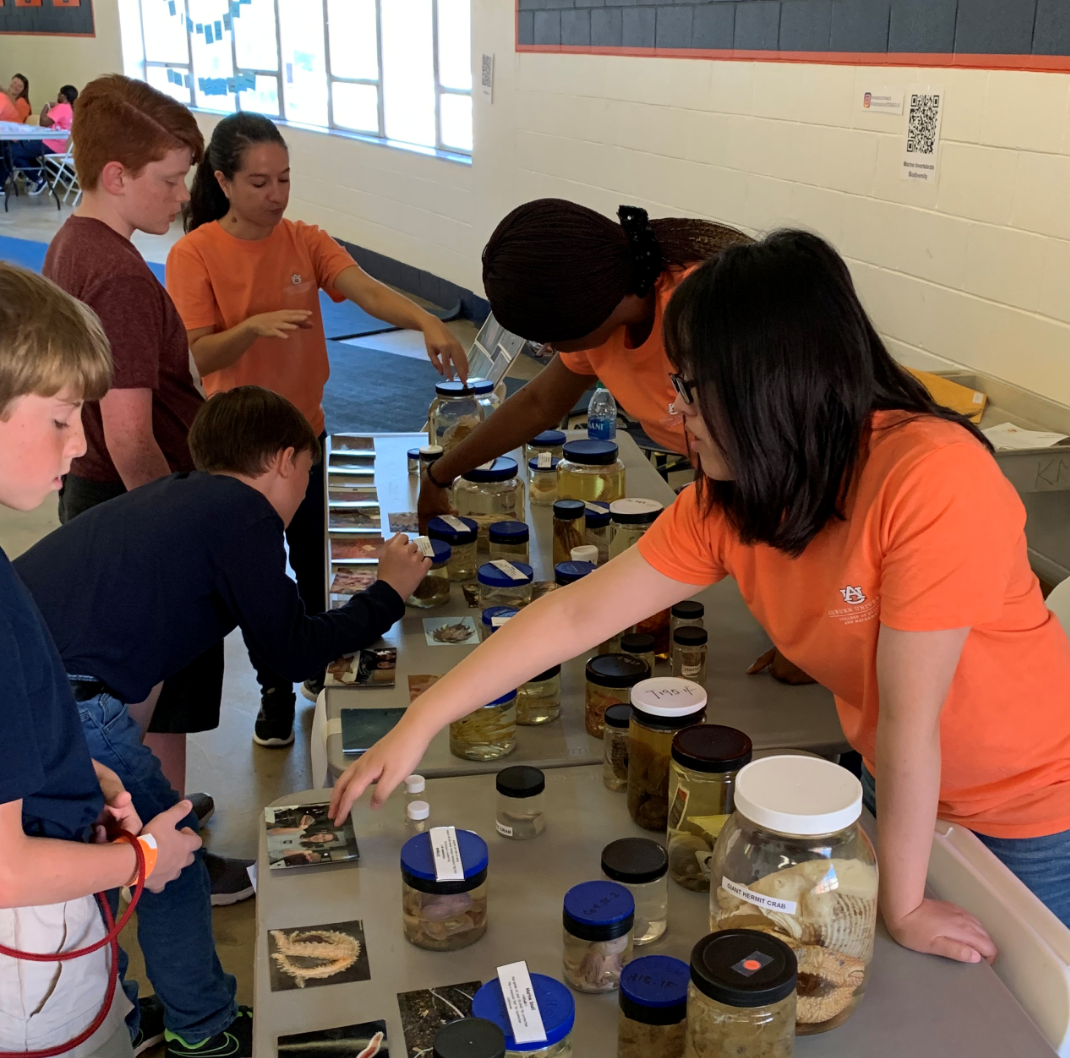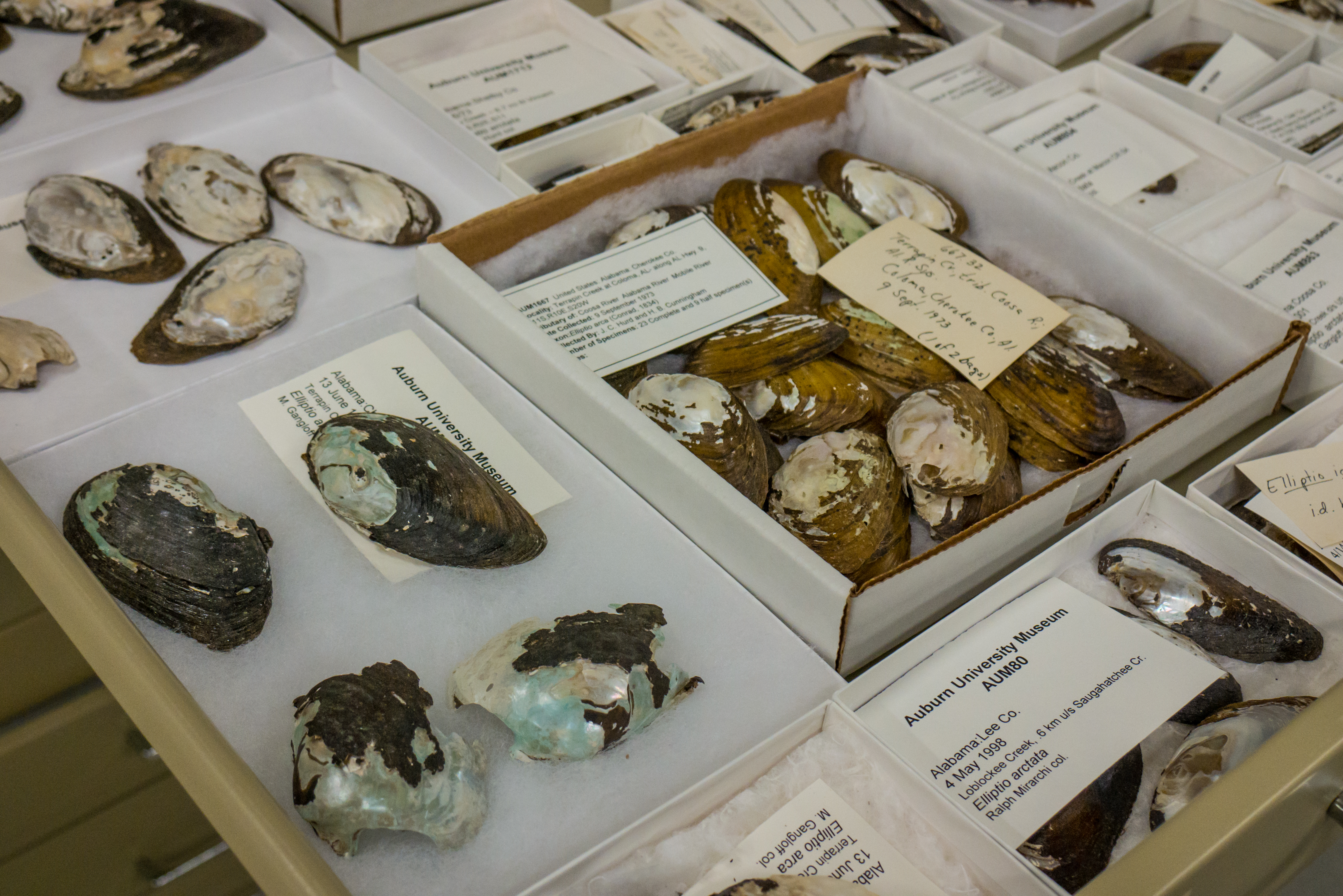Museum’s Aquatic, Marine Invertebrates Collection Spans Globe
The aquatic and marine invertebrates collection at the Auburn University Museum of Natural History contains roughly 30,000 specimens that are split into multiple collections. The collection includes aquatics, freshwater, marine and terrestrial specimens derived from as close as Lee County to as far away as Antarctica.
Dr. Ken Halanych, curator of marine invertebrates, has been building his own collection of marine specimens since he began working in the Auburn University Department of Biological Sciences in 2003. He moved his collection into the museum and began helping to build it in 2014.
“We have the aquatics collection, which is mainly dealing with things that are in freshwater,” Dr. Halanych explained about the collection. “We have a marine collection which is things living in saltwater and then we also have a terrestrial collection which includes things like spiders and insects.”
The earliest specimens in the collection date back to 1905 and include local species of crayfish, Cambarus harti from Flat Shoals Creek (Chattahoochee River drainage) and Cambarus striatus from Chewacla Creek in Auburn.
Dr. Halanych explained the freshwater collection is highly diverse because the southeastern United States is an unusual species-rich region of the world for freshwater taxa and added that the museum has really good holdings in this specific collection.
“The diversity of freshwater organisms is crazy high in Alabama,” he said. “It has to do with the fact that it’s an old area, there’s lots of streams and rivers. Just the way this area has geologically evolved over time, we have basically some of the highest diversity not only of fish but of freshwater bivalves, freshwater snails and crayfish. The highest diversity of these groups basically anywhere on the planet is in the Alabama, Georgia and the Mississippi area going up into Tennessee, too.”
He added that the Alabama Department of Conservation and Natural Resources have a lot of interest in the freshwater snails and crayfish in the collection because many of the specimens are endemic to our area, meaning they are found here and nowhere else.
The marine collection, which has been significantly augmented with Dr. Halanych’s laboratory research collection, is steadily growing.
“Some collections of our collections in marine snails and gastropods have been donated,” he said. “Also, several years ago the University of South Alabama was cleaning out some of their samples and had a lot of donations to the museum from people along the Gulf coast and that helped build up our marine resources.”
Dr. Halanych’s personal collection is mostly built out of his deep-sea work in the Antarctic.
“We have a really good holding of Antarctic marine invertebrate now that’s been growing and I got funded to go back to Antarctica which will expand that collection some more,” he said. “So, that collection is starting to get used and recognized by people. About a year ago, we had a curator come over from the Paris museum to look and work with our specimens here. So, the word is getting out.”
He added that one reason the Antarctic specimens are important is because of global climate change.
“The Antarctic and Arctic are the fastest changing areas on the planet,” he said. “So, having a good accounting of their biodiversity and the ranges of organisms is really important.”
The importance of a diverse aquatic and marine invertebrates collection is one Dr. Halanych believes can’t be denied.
“It’s important to realize the connection tied to the marine environment and the huge impact it has on us and our lives,” he said. “Everything from the third of the nation’s seafood coming out of the Gulf of Mexico to more basic aspects like nutrient cycles, including oxygen and carbon, being driven by oceans. It all connects.”
Latest Headlines
-
02/12/2025
-
02/11/2025
-
02/10/2025
-
01/30/2025
-
12/03/2024





